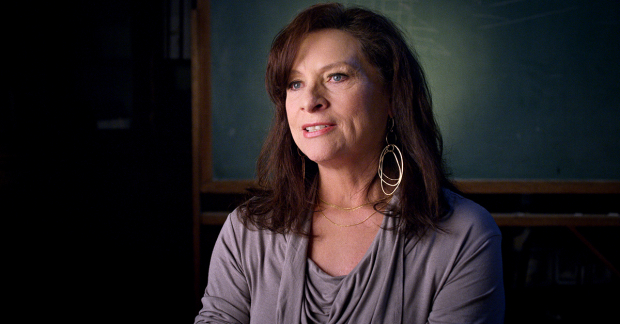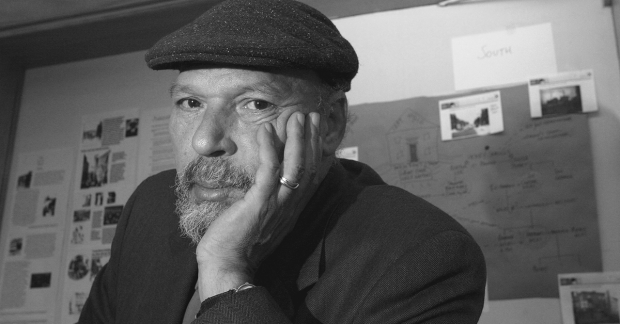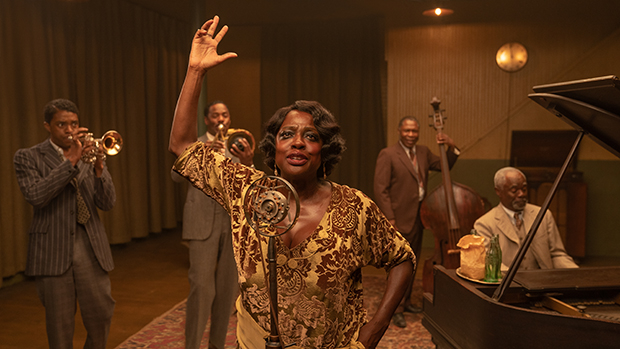Interview: Constanza Romero, August Wilson's Widow, Discusses Giving Voice and Ma Rainey
Romero, executor of Wilson’s estate, shares her thoughts on the importance of these two new films and how they cement her late husband’s legacy.
December 2020 is a banner month for the career of late playwright August Wilson. Within two weeks, Netflix has released two new films spotlighting Wilson's career and legacy: Giving Voice, a documentary by James D. Stern and Fernando Villena, about the history and importance of the August Wilson Monologue Competition, and Ma Rainey's Black Bottom, George C. Wolfe and Ruben Santiago-Hudson's screen adaptation of Wilson's first Broadway play, with a jaw-dropping cast led by Viola Davis and Chadwick Boseman.
In his own humble way, Wilson, who died of liver cancer at 60 in 2005, would have reveled in this nationwide effort to spotlight his work, according his widow and literary executor, Constanza Romero. Here, the Tony-nominated costume designer discusses the films, her late husband's work, and their importance.

(© Netflix, Inc.)
This conversation has been condensed and edited for clarity.
For those who aren't as aware of the August Wilson Monologue Competition, can you tell us a little bit about its origin?
August had an assistant named Todd Kreidler, and their friendship and camaraderie was fantastic. They had a really wonderful working relationship. When they first met, Todd was working at the Pittsburgh Public Theater, where they had a Shakespeare monologue competition. After August died, Todd had an idea of doing an August Wilson monologue competition. He expressed the idea to his friend, Kenny Leon, who was running True Colors Theatre in Atlanta at the time, and they started to organize the competition as a way to take August Wilson plays into high schools. I watched it grow and bloom, and here we are more than ten years on.
Giving Voice is such an inspiring movie, which is befitting of such an inspiring event like the competition.
It really is. Those kids are so passionate. It allows them to have a way to really express themselves, and you really see the power and triumph of the arts and arts education in young people who normally would not have access to it. It opens such a huge door to the possibilities around them in the arts, and also creates new audiences for August's plays.
After a year like this, which such intensive conversations about race and equity, these movies are coming out at the perfect time.
I agree completely. Without overestimating August's work, I really believe that he, in all of his plays, was speaking about Black Lives Matter, before the concept of Black Lives Matter was out there.

(© August Wilson Estate)
Given their statures and individual histories in the theater industry, I was surprised to learn that August had never worked with George C. Wolfe, who directed the Ma Rainey's Black Bottom movie.
Yes, I know! But George is the kind of artist who knows so much about the music and the culture, that he understands the language perfectly. When I first saw the film, I told George, that in my mind, it felt like he and August sat in a little corner on the set and had a talk about the play and the message within it. It's really uncanny; George just touches on some particular moments that are so important, that August would have wanted to underline. It really does feel like they had a melding of the minds along the way. The movie comes in at around 90 minutes, and it's amazing how the medium of film tells so much of the story just in visuals. August has been accused of everything but being brief, but everything August wanted to convey in this play is all in there.
Was your August the kind of person who thrived in the spotlight? Would he have reveled in the idea of the competition, and the two films, and the postage stamp, and the Hollywood Walk of Fame Star?
Certain things, for example, Ma Rainey as a movie, August would have imagined that. I think the August Wilson Monologue Competition is just out of the box enough that he would not have imagined that possible while he was a live, or how big it has gotten. At the same time, he always believed in the power of poetry and the power of live theater, and he would have championed all of these young people who want to invest themselves in the monologues. I think he would be thrilled to have Ma Rainey and Giving Voice out at the same time.
The postage stamp and the Walk of Fame star are both very, very cool, and it's funny you put them in parallel. I think he would have felt like "Yeah, that's right. I did enough to earn myself as a postage stamp." But he definitely would have gotten more of a chuckle about the Hollywood Walk of Fame Star. He would have just loved it all, I think. Most of the time, I'm sorry he's not here, but I'm sorry he's not here to see what this nationwide effort has brought. In a humble way, he would be shining and very proud.

(© David Lee/Netflix)







